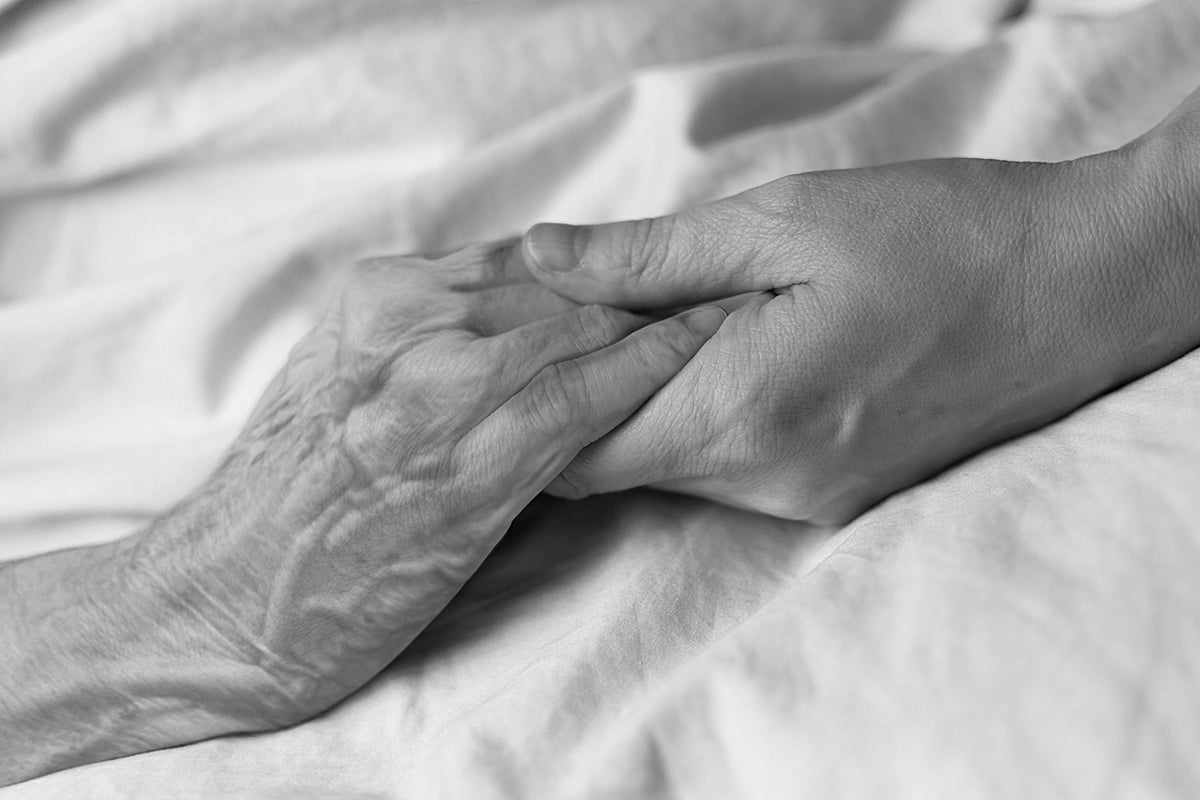
The doctor behind a bill which could see the first place in the British Isles come a step closer to legalising assisted dying said he is “cautiously optimistic” a vote this week will go through.
Dr Alex Allinson acknowledged that while it is a sensitive issue, he believes there is a “far larger” number of people interested in helping those facing difficult deaths to take control than those opposed to a change in the law.
The GP, who is also the Isle of Man government’s treasury minister, said he is confident the island’s parliament has the time to “craft the right bill” which he said could see assisted dying services offered as soon as 2025.
The Isle of Man parliament will vote on the Assisted Dying Bill on Tuesday, when it goes through its second reading.
Dr Allinson introduced it last year as a private member’s bill in his capacity as a Member of the House of Keys (MHK) for the Ramsey area on the island.
Pro-change campaign group Dignity in Dying has described it as a “landmark vote”, saying that if it is approved “the Isle of Man will be on the path to become the first part of the British Isles to legalise assisted dying as an option for its terminally ill, mentally competent citizens, subject to strict safeguards”.
In an interview with the PA news agency, Dr Allinson said there would be “extensive parliamentary discussion” if the bill progresses, and that he is hopeful it could receive royal assent next year, followed by a period to consider how the legislation would be implemented.
Those people who are opposed to it (the bill) will never have to take up its provisions. But for those small number of people who have unbearable suffering at the time of an inevitable death due to a terminal illness, this is an incredibly important provision— Dr Alex Allinson
He said: “If we can do the work in terms of getting the regulations, the guidance, the training, the support, the education right, then we’d be looking at bringing it in around about that time (2025/26).”
He said he is “cautiously optimistic” it will clear this latest stage of the process.
If voted through this week, the bill would then immediately be put to another vote on whether it is to be scrutinised by a small committee or debated by the whole parliament.
Asked how significant the progress of his bill is, he told PA: “If it is passed, this is just for Isle of Man residents, so it doesn’t satisfy the needs of people in other neighbouring jurisdictions.
“But I think what it does show is that appetite amongst our public, and their elected representatives, to bring forward progressive legislation that will provide for assisted dying.”
As a practising doctor, he said he has seen first-hand the experience of people and their families facing “difficult deaths”, which has spurred his action on the issue, but also accepted there is opposition to law change from some.
He said: “I recognise and respect their views – assisted dying is not going to be for everyone.
“And those people who are opposed to it will never have to take up its provisions. But for those small number of people who have unbearable suffering at the time of an inevitable death due to a terminal illness, this is an incredibly important provision.”
Campaigners from Care Not Killing said changing the law would perpetuate a message “that those with a terminal or chronic condition will die in terrible pain, that current palliative care cannot help them, and they should instead opt to have doctors administer death row drugs to end their lives”.
Its chief executive, Dr Gordon Macdonald, said: “At a time when we have seen how fragile our healthcare system is, how underfunding puts pressure on services and when up to one in four Brits who would benefit from palliative care don’t get access to it, I would suggest this should be the focus of parliamentary attention, rather than discussing again this dangerous and ideological policy.”
In July, social care minister Helen Whately told a parliamentary committee hearing evidence into assisted dying and assisted suicide in England and Wales that debate in this “sensitive area” is one that should be led by MPs at Westminster and that it is an “issue of conscience” for members of Parliament to decide.
The Health and Social Care Committee, which heard from peers, experts and Swiss organisations including Dignitas during its sessions, is expected to publish a report later this year.
Assisted suicide is currently banned in England, Wales and Northern Ireland, with a maximum prison sentence of 14 years.
In Scotland, assisted dying is not a specific criminal offence but assisting the death of someone can leave a person open to murder or other charges.
Scottish Liberal Democrat MSP Liam McArthur’s member’s bill, which seeks to enable mentally competent adults who are terminally ill to be provided with help to end their life if they request it, is expected to be published in Scotland later in the year.
The Republic of Ireland’s parliament has also been holding committee hearings into the issue of assisted dying to consider and make recommendations for any potential legislative and policy change.
The Isle of Man’s bill is worded as “a bill to enable certain adults who are terminally ill to be provided at their request with specified assistance to end their own life; and for connected purposes”.







